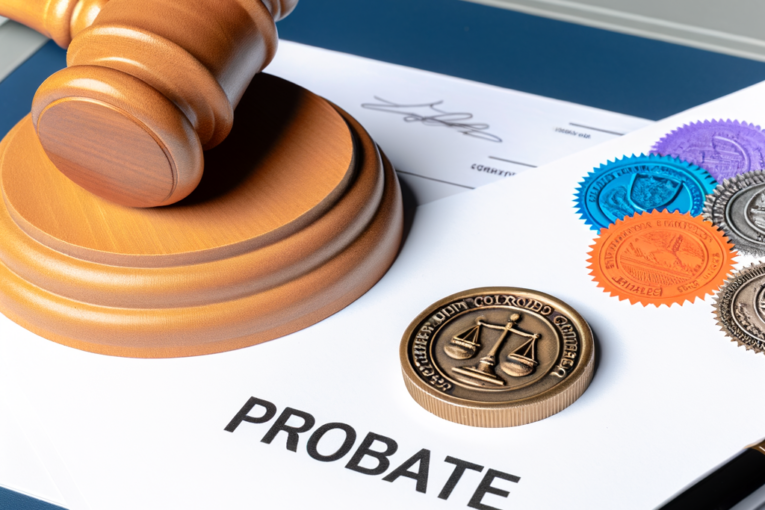A will is one of the most important legal documents you can create to protect and provide for your loved ones. With a well-crafted will, you can ensure your assets are distributed according to your wishes when you pass away. This article will explore the key benefits of creating a will and how it allows you to shape your legacy.
What Is a Will, and Why Is It Important?
A will is a legal document that lets you decide how your assets should be disbursed after you die. It allows you to choose who will receive your assets, how much they will receive, and when they will receive them.
Without a will in place, your assets will be distributed according to your state’s intestacy laws, which may not align with your wishes. Dying intestate (without a will) can also lead to family disputes over your estate.
Having a will gives you control over what happens to your assets when you’re gone. It lets you provide for your loved ones and shape your legacy according to your values.
Key Benefits of Creating a Will
Here are some of the main reasons why having a will is so important:
- You get to decide who inherits your assets. With a will, you choose who receives your money, property, and possessions. You can divide your estate however you wish.
- You can name a trusted executor. Your will allows you to select a reliable executor (sometimes called a personal representative) to manage your estate according to your wishes. They will pay debts and taxes, notify beneficiaries, and distribute assets.
- You can name guardians for minor children. If you have young children, your will lets you choose trusted guardians to care for them if something happens to you. This provides clarity and helps ensure their well-being.
- You can create trusts for beneficiaries. Within your will, you can create trusts to manage assets for beneficiaries until they reach a certain age or milestone. This provides control over inheritances.
- You can make gifts and donations. Your will enables you to leave gifts or donations to charities, institutions, or causes you care about. This allows you to support them beyond your lifetime.
- You can minimize estate taxes. With proper estate planning, you may be able to minimize inheritance taxes and other costs, maximizing the assets your beneficiaries receive.
- You can specify funeral wishes. Your will gives you the option to outline your memorial service wishes, such as cremation vs. burial. This takes the burden off your family.
- You can update your will as needed. Life brings changes, but you can modify your will as circumstances shift. Keeping it updated ensures it reflects your current wishes.
Choosing How Your Assets Are Divided
One of the key powers a will gives you is the ability to decide precisely how your assets should be divided when you pass away.
Your will acts as the legal instruction manual for what happens to your assets—money, property, possessions, and everything else you own.
Without a will, those decisions will be made for you based on state intestacy laws. The results may be very different from how you would have chosen to disperse your estate.
With a will, you have total control. You can do things like:
- Leave certain personal possessions to specific people for sentimental reasons.
- Divide your assets evenly among your children or other beneficiaries.
- Leave specific dollar amounts or percentages for certain beneficiaries.
- Disinherit certain potential heirs if desired.
You can also impose conditions on inheritances, such as requiring a beneficiary to reach a certain age before receiving their assets.
Think carefully about how you want your hard-earned assets divided, and make sure your will outlines those wishes clearly. An estate planning lawyer can help craft the appropriate language.
Naming a reliable executor
In addition to deciding how your assets are disbursed, your will allows you to select an executor (sometimes referred to as a personal representative) for your estate.
The executor’s role is to carry out your wishes according to the instructions in your will. Their main responsibilities are to:
- File the will with the probate court to begin the probate process after your death.
- Manage assets during the potentially months-long probate process.
- Pay any outstanding debts and taxes using estate assets.
- Notify beneficiaries about inheritance gifts.
- Distribute assets to heirs as outlined in your will.
Choosing a competent, honest, and responsible executor is one of the most important decisions when making your will. Consider choosing:
- A family member or friend you trust fully
- A financial or legal professional, such as an attorney
- An impartial third party, like a bank’s trust department
Provide clear guidelines in your will to help the executor carry out their duties properly. An unclear will can lead to confusion and disputes.
Naming Guardians for Minor Children
If you have minor children, one of the most important elements of your will is naming legal guardians for them.
Selecting guardians ensures the people you trust most will care for your children if you and your spouse become unable to do so. It also provides critical peace of mind, knowing your children will be in good hands.
Important factors when naming guardians include:
- Shared values and parenting styles: Choose potential guardians who share your values and approach to raising children. This will help maintain consistency for your kids.
- Financial situation: Make sure potential guardians are financially secure enough to provide for your children without hardship.
- Health and age: Select younger guardians who are physically and mentally equipped to raise children through adulthood.
- Willingness and ability to serve: Discuss guardianship ahead of time with potential guardians to confirm they are willing and able to take on the responsibility.
In your will, provide contingency guardians in case your first choice is unable to serve. You can also name separate guardians for each child, if desired.
Consult an estate planning attorney to ensure you take any additional legal steps needed to secure guardianship. But naming guardians in your will provides crucial direction.
Using a Will to Support a Living Trust
For many people, a will works hand-in-hand with a living trust as part of a complete estate plan.
A living trust allows you to place assets in a trust during your lifetime to avoid probate. But some assets may still need to go through probate.
Your will serves as a backup to “catch” any assets that were not transferred into your living trust. The will directs those leftover assets into the trust so they can be managed and distributed according to your wishes.
Your will also allows you to name guardians for children, which a trust may not cover.
So while a living trust is excellent for avoiding probate, your will acts as a safety net to tie up any loose ends. Having both ensures your estate is handled precisely as you want.
How to Create a Legally Valid Will
While writing a will seems straightforward, following the correct legal formalities is critically important. If your will does not adhere to your state’s requirements, it could potentially be challenged.
Here are some key steps for creating a valid will:
- Consult an attorney. Hiring a knowledgeable estate planning lawyer is highly recommended to ensure your will abides by all state laws and avoids errors.
- Identify your beneficiaries. Make a complete list of who should inherit your assets, including alternates if beneficiaries predecease you.
- Choose executors: Select primary and alternate executors to administer your estate.
- Be specific. Carefully describe how you want your assets divided and distributed. Ambiguous language can cause disputes.
- Sign your will. You must sign the will in the presence of two adult witnesses, who also must sign. This makes the will legally binding.
- Store it safely. Keep the original signed will in a fireproof safe or safe deposit box. Provide copies to your executor and lawyer.
- Update it: Review and amend your will periodically, especially after major life events like marriage or divorce.
While not complicated, properly creating and executing a will requires precision. An experienced estate planning attorney can guide you through the process and help avoid costly mistakes. The investment is well worth it.
Take Control of Your Legacy With a Will
Without a thoughtfully crafted will, you lose your ability to control what happens to your assets and minor children after you’re gone. Estate laws will determine everything.
Creating a will empowers you to shape your legacy according to your values and priorities. It enables you to support causes that are important to you, provide for your loved ones, and guarantee that the people you most trust are taking care of your children.
While no one likes thinking about their mortality, taking the time to create a proper will is one of the most important things you can do for yourself and your family. Don’t leave it to chance. Consult an estate planning attorney and make your will today.





